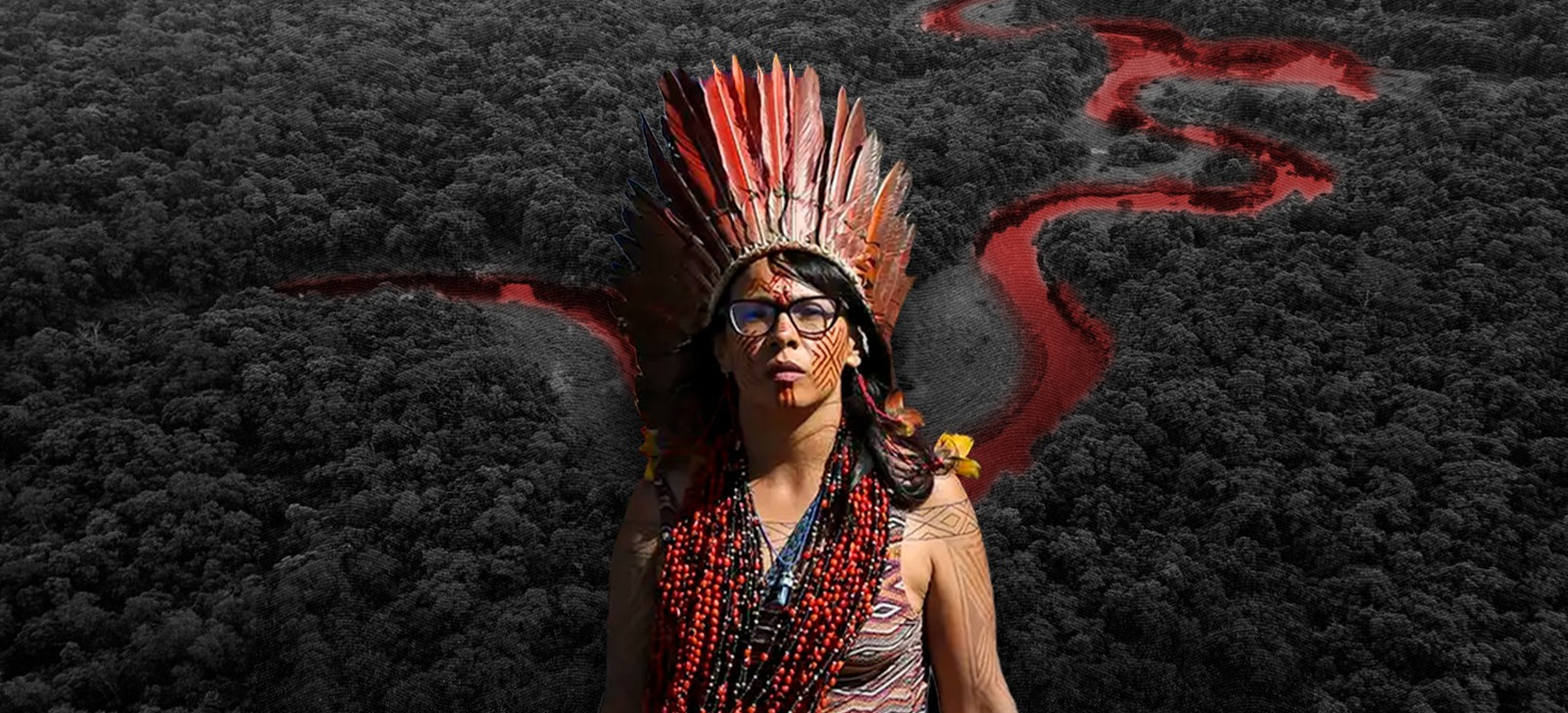There is no celebration where there is blood: the deadly silence of Indigenous Peoples’ Day
15 de May de 2025

Article by Inory Kanamari – From Cenarium
Ka tücüna naina.
I speak as an Indigenous lawyer, with years of struggle in the courts, in the villages, and on the streets. I speak as an original woman, heir to a people who have resisted since the first day of the invasion of this territory now called Brazil. Today, once again, we are asked to celebrate the National Day of Indigenous Peoples, as though there were something to commemorate while our bodies continue to fall, while our territory continues to be violated, while our collective spirit remains the target of a continuous and silent project of extermination.
There is no possible celebration amidst the blood spilled by our leaders, our children, our elders. We continue to be murdered, physically and symbolically, by state policies sustained by racism, omission, and lies. The Temporal Framework thesis, the omission in the face of the Yanomami genocide, the dismantling of territorial protection policies, the criminalisation of our leaders: all of this forms part of a machinery of death that Brazil insists on maintaining. And this is not negligence. This is a project.
It hurts deeply to see that when an Indigenous leader is murdered, the country remains silent. The mainstream media is silent. Society averts its gaze. We were forgotten before we were even heard. The story of Galdino Jesus dos Santos, burned alive in Brasília, was treated as a “mistake in judgement” by his murderers. Paulo Paulino Guajajara fell protecting his forest, and his death was forgotten within days. How many more names will we have to list before we are seen as human?
Meanwhile, the deaths of non-Indigenous allies — like Bruno Pereira, Dom Phillips, and Dorothy Stang — receive international spotlights. Not by chance. Their stories, although important, are only amplified because they speak the language the system understands. The pain of the white man hurts more than ours. This is structural racism, it is colonialism in the 21st century. And it takes courage to say this loudly and clearly.
The question that haunts us is simple and brutal: why does the death of an Indigenous person not move Brazil? Why is there no national outrage when our relatives are killed defending the land that sustains everyone’s life? Why do our screams keep echoing into the void?
Today, on this 19th of April, I want to remind everyone that territory, for us, is body and spirit. It is not merely land — it is life, it is continuity, it is existence. When our land is taken from us, our body is killed. When our culture is destroyed, our spirit is silenced. This is the sacred trinity that constitutes us. But the Brazilian state insists on violating it every day.
Brazil loves to pose to the world as a defender of diversity, as guardian of the Amazon, as partner of Indigenous peoples. But we know this is nothing more than poorly applied make-up. The true policy in practice is one of invisibility, of silencing, of systematic erasure.
What I want today is not congratulations, nor empty tributes. I want truth. I want justice. I want living memory for each fallen relative. I want them to stop pretending to respect our rights while killing us slowly with bureaucracy, violence, and omission.
I invite Brazilian society to reflect honestly on its own complicity in this system. While you choose what to feel, we continue to bury our loved ones.
The struggle for Indigenous life cannot be remembered only in pre-prepared speeches. It must be at the centre of political decisions, of public investment, of justice actions. Real respect is not made with hashtags nor with commemorative dates. It is made with land demarcation, with effective protection, with genuine listening.
We remain standing. We continue existing, resisting. But each day, the Brazilian state shows us that it would prefer us only as part of the past. And that is exactly why we will always resist. Because to live, for us, is the greatest political act.
Bapo ikoni. Until the next article.

